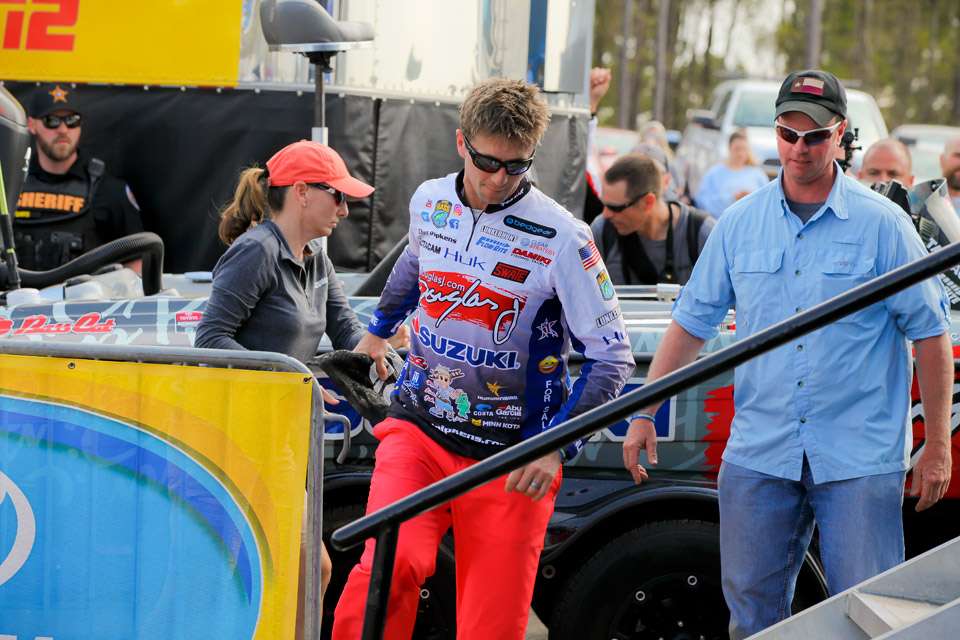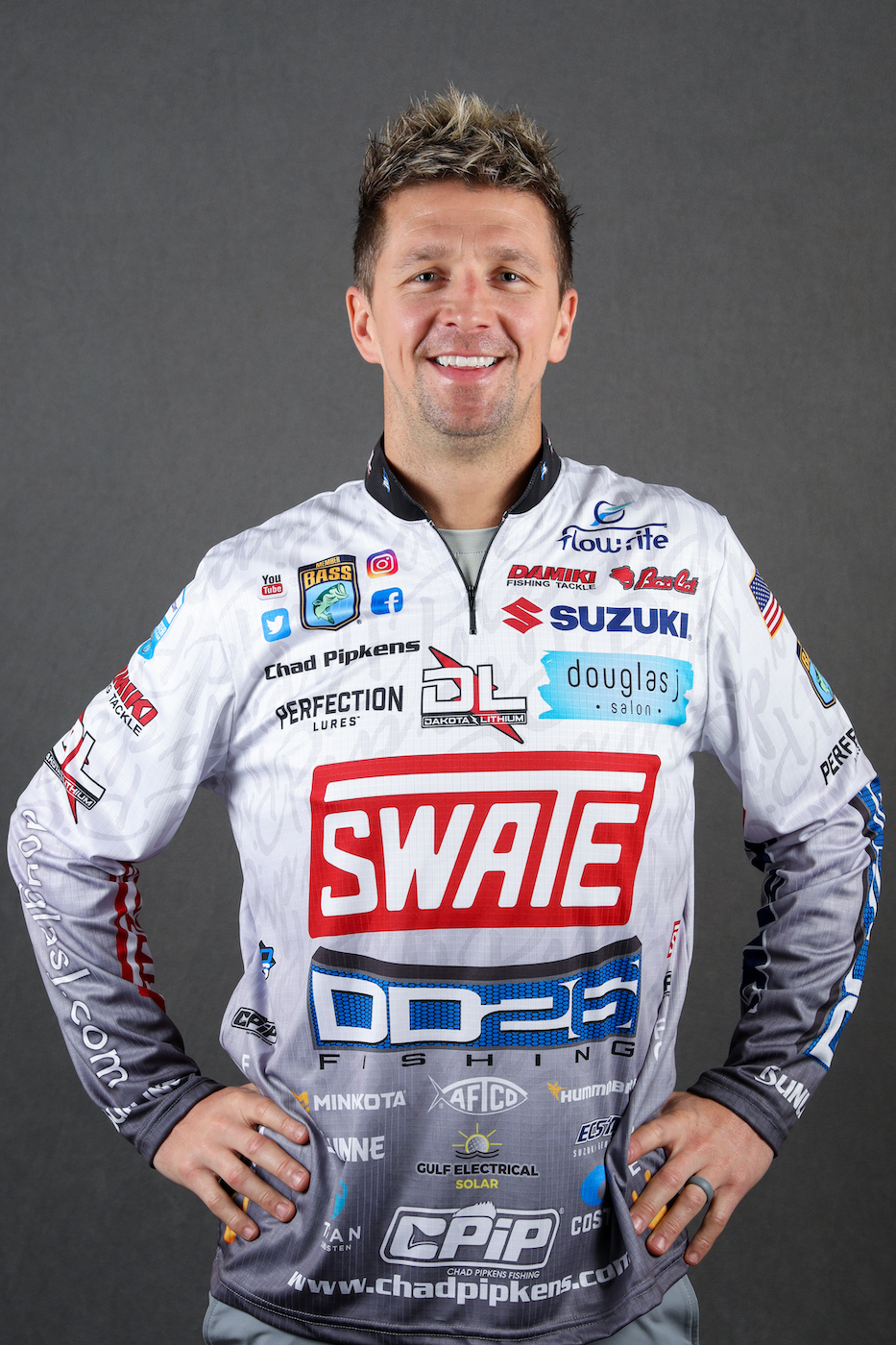
You can learn a lot about yourself through injuries and the humbling ups and downs of fishing.
As many of you know, I was involved in a freak hockey game injury last winter. I broke my clavicle in three places. It was questionable as to whether I would be able to compete in the Lake Hartwell tournament April 4.
I got the doc’s permission — providing I took it easy and didn’t use my left shoulder or lift more than 5 pounds. Although I am right-handed, I knew I was at a big handicap because I was limited in what I could do with the left side of my body.
I was going to do what I could and garner as many valuable Toyota Bassmaster Angler of Year points as possible.
My left arm was so useless I couldn’t hold it up. In fact, when I rested my left hand on the steering wheel while driving down there, it fell to my side.
That’s how bad it was.
When the tournament began, I drove the boat with the right hand and didn’t get in a hurry. It was uncomfortable anytime I hit a wake, so a lot of boats passed me when I made the 10-mile run each day.
But there’s a good side to this story. I finished ninth – the first time I’ve been in the Top 10 of an Elite event since 2015.
Obviously, I got on the right fish, but more importantly, I fished relaxed and patiently without any expectations. I put a lot of thought in everything I did and never got in a hurry.
I told myself, “shoulder first, fish second.” Otherwise, I would reinjure myself.
For example, I fished mostly with spinning gear that required a less forceful hookset. Most others were fishing with baitcast gear.
I rigged my 6-10 light action Swate Rod with 10-pound Sunline FX Braid and an 8-pound Sniper Fluorocarbon line. Because of the lack of stretch in the braid, I didn’t have to pull hard to set the hook, and the Eagle Claw Neko-style hook I was using for the first time was super sticky and penetrated easily. The rod did most of the work until the fish tired out.
Even so, my good shoulder began to hurt because I was making it do all the work. Once I figured that out, I began twisting my body to cast which helped reduce the strain on my right arm and shoulder. It looked weird, but it worked.
I also caught 70 percent of my fish on a weightless Lunkerhunt Stick, a technique that forced me to slow down and fish more methodically.
I fished relaxed, cleaner, smarter, and took time to think things through.
The next tournament at Winyah Bay was different. I was gaining strength in my arms and had a tremendous practice – I was shaking off 30 or more keepers a day. I had several places I could go, drop my Talons and quickly catch five or six fish. My confidence soared.
But when the tournament started, conditions changed and I didn’t adjust. I grew impatient, fished through areas quickly and chased the bites I had in practice that just weren’t there.
I lost my focus. Had I tried to locate where those fish moved and fished areas slowly – like I did at Hartwell – the results may have been different.
Now, as I look back, I realize the patience and calmness I had at Hartwell was an asset that evaded me at Winyah Bay.
I share this with you hoping you can learn from my experiences.
When the fish you found yesterday aren’t biting, don’t get in a hurry. Slow down, think it through and make adjustments.
The end result will likely turn out better!

